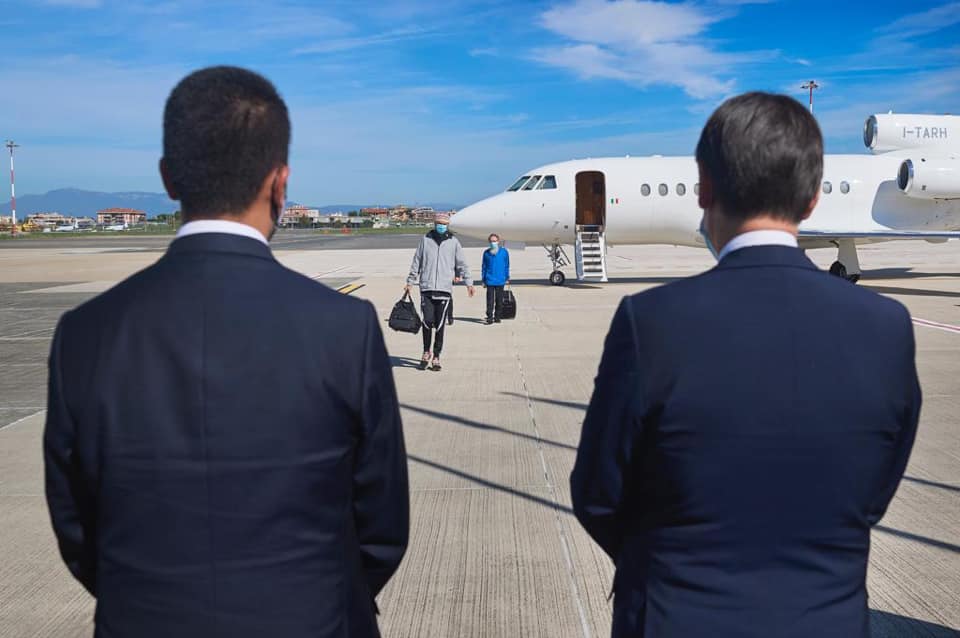On Friday news broke that four hostages had been released by al-Qaeda in Mali. Among them were two Italian missionary priests, father Pier Luigi Maccalli and Nicola Chiacchio, who flied back to Italy that same day.
Italy’s foreign minister Luigi Di Maio welcomed the pair back in Rome and hailed the news with joy on Twitter. He later thanked his ministry’s staffers and the foreign intelligence agency (AISE) for their “silent work” that allowed for the freeing of 7 Italians this year.
The following day, Mr Di Maio gave an interview to the Catholic daily Avvenire. In it, he described the return of kidnapped Italians as a result of Italy’s soft power, or as he put it, “the ability to persuade through non-tangible but fundamental resources such as culture, values, and attitude in dialogue with the other.”
The minister highlighted how effective foreign policy can be conducted at street level through programmes of social development and emancipation, centred on personal relations. Father Maccalli and all the other Italians working in charitable missions around the world contribute to the consolidation of Italy’s soft power, he argued.
These practices are most evident in Africa, said Mr Di Maio. The continent is “close, not only in geographical terms,” and it sits at the centre-stage of Rome’s foreign policy effort. For instance, Italy has been employing the soft power approach to stabilise the Sahel region in recent years.
That effort is carried out not only through voluntary missions, but also through programmes of cooperation “ranging from development to security, from support to a civil society based on universal values such as religious freedom, to migration.”
Such programmes are loosely led by the Italian State. To support this network, Rome has opened embassies in Niger and Burkina Faso in recent years, and it’s currently working to do so in Mali.
The Sahel approach was also outlined in an interview to Mr Di Maio carried out by Formiche.net. In it, he identified the region as a “strategic area for the fight against terrorism and international criminality, other than an effective management of irregular migration.”
Emanuela Del Re, deputy foreign minister, has placed foreign humanitarian cooperation at the front of her agenda. Her trips to Northern Africa and the Middle East in the last months earned her the attention of the US, and Secretary of State Mike Pompeo even visited the Community of Sant’Egidio, a lay Catholic community focussing on social services, in his recent trip to Italy.
The recognition of these efforts on behalf of the US also fostered the conditions for Mr Di Maio’s first travel for the first time to Israel. US-Israeli relations are extremely close at the moment – if the Abraham Accords are anything to go by -, and an American recommendation goes some way toward compensating for the historically fluctuating, have-it-both-ways Italian stance on the Israelo-Palestinian conflict.
If the Covid-19 situation allows for it, Mr Di Maio will travel to Jerusalem on October 29th, Formiche.net understands. The Israeli ambassador to Italy Dror Eydar has announced that he will go along.








